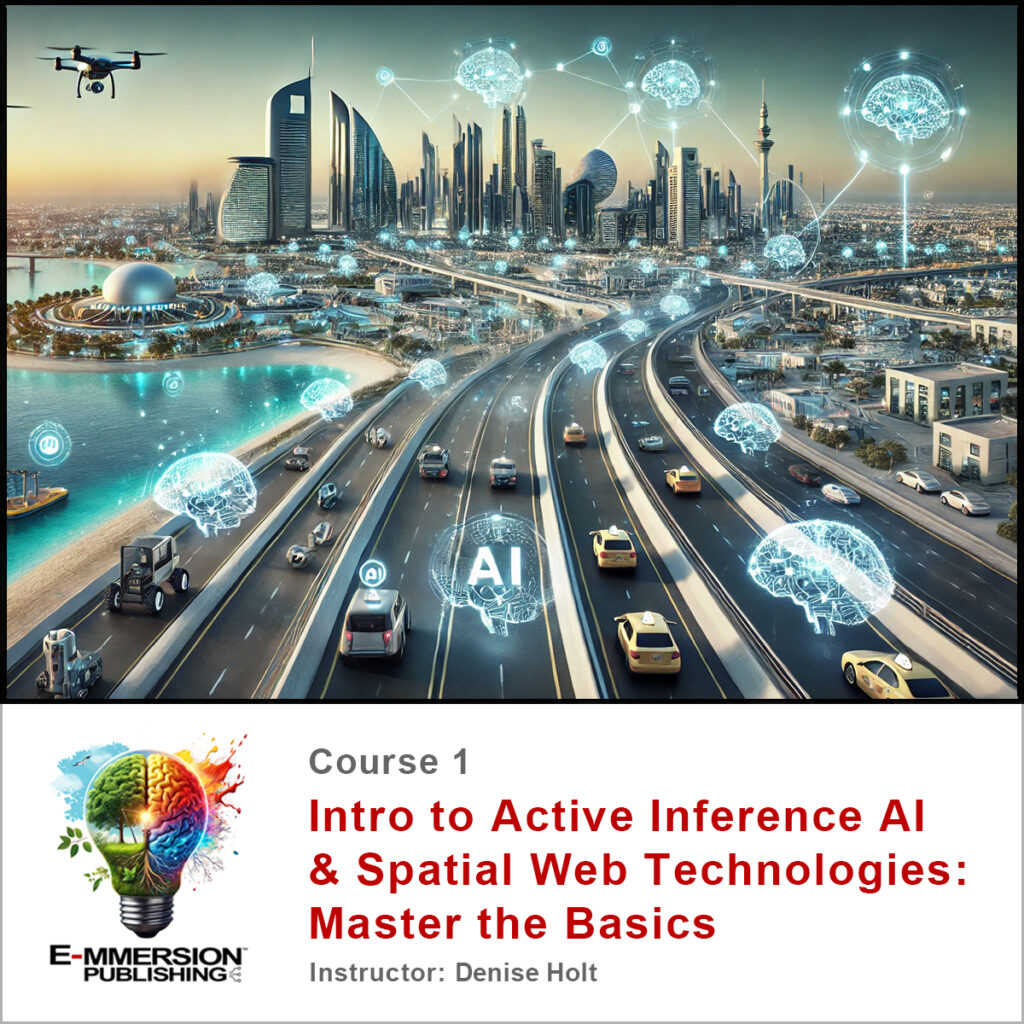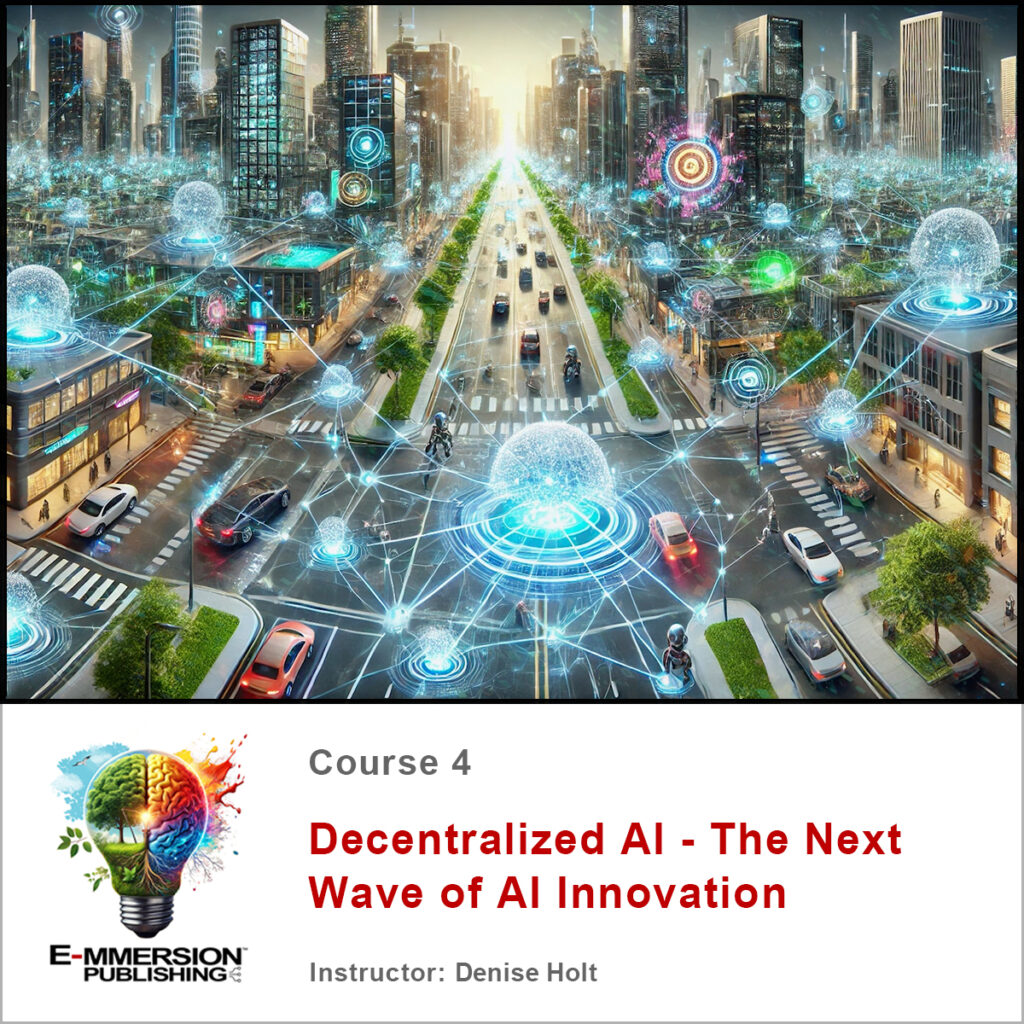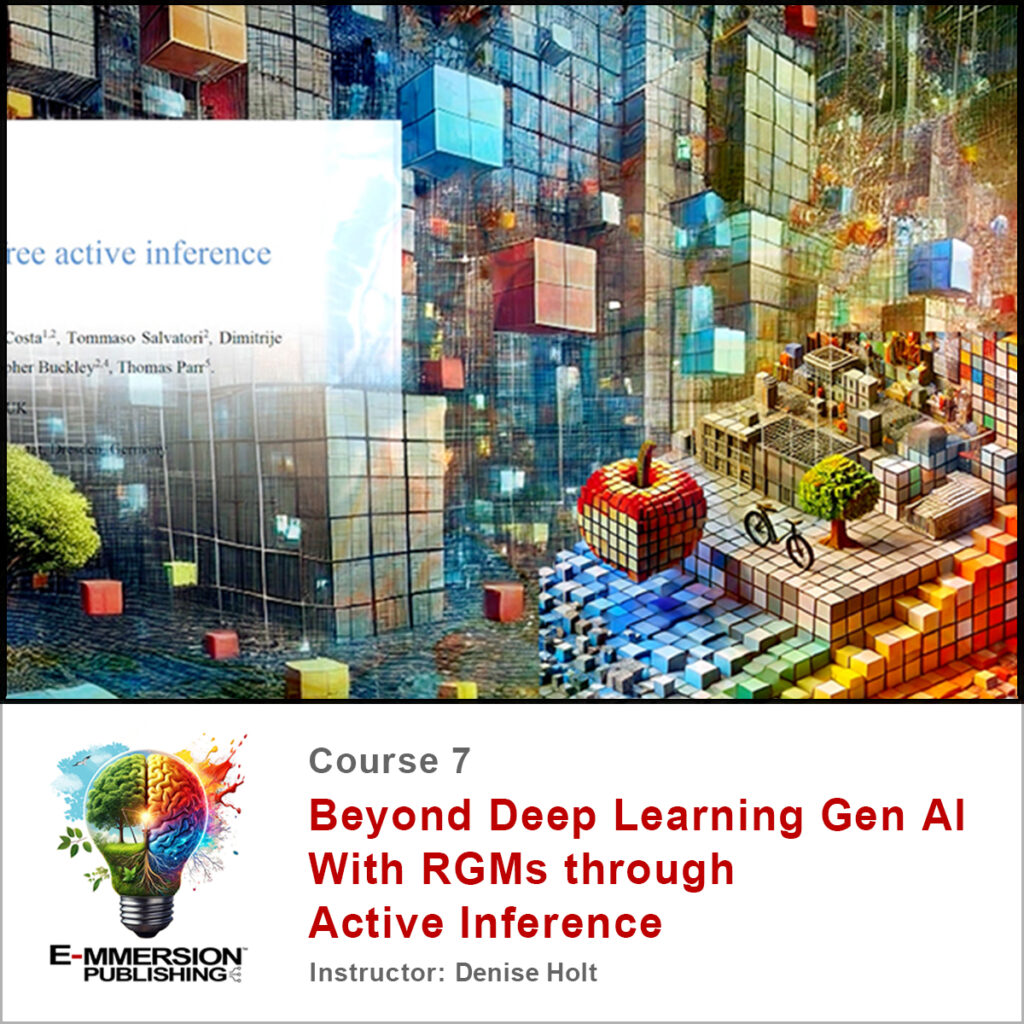Intro to Active Inference AI and Spatial Web Technologies: Master the Basics
Enroll in this course to build a foundational understanding of the future of AI, focusing on shared, distributed, and multi-scale intelligence through Active Inference and the Spatial Web.
Course Fee: $320


COURSE 1 - Intro to Active Inference AI and Spatial Web Technologies: Master the Basics
This course explores the evolution of artificial intelligence, introducing students to concepts beyond traditional AI, including shared, distributed, and multi-scale models based on Active Inference. Students will explore how the Free Energy Principle and real-time data integration create a foundation for more adaptable and context-aware AI systems. Through examining the Spatial Web and digital twin technologies, participants will learn how these new AI systems interact seamlessly within interconnected, intelligent environments. This course equips students with the knowledge to understand how these advancements reshape industries by providing scalable, efficient, and decentralized solutions that adapt and respond to real-world contexts in real time.
Course Outline:
Module 1: Introduction to Future AI and Spatial Web Fundamentals
This module introduces the limitations of traditional AI and highlights the transition to Active Inference AI. It explores the Free Energy Principle, shared intelligence in the Spatial Web, and the implications of multi-scale, distributed AI for enterprises and society.
Module 2: Protocols and Frameworks of the Spatial Web
Learn about the foundational protocols and frameworks of the Spatial Web, including HSTP and HSML, which enable interoperability, data sovereignty, and contextual intelligence. This module covers the importance of digital twin spaces in achieving intelligent, decentralized systems.
Module 3: Practical Applications of Spatial Technologies
This module delves into programmable spaces and the creation of digital twins and knowledge graphs, which provide a dynamic, interconnected representation of the physical and digital worlds. These tools enable intelligent agents to interact, adapt, and make decisions within nested ecosystems.
Module 4: Theoretical Foundations and Network Intelligence
Explore how the Spatial Web facilitates the creation of distributed networks of intelligent agents. This module explains how these agents collaborate in real-time using HSML, creating a scalable, self-evolving system that integrates human and AI intelligence.
Module 5: Deep Dive into Active Inference AI
This module introduces how Active Inference AI creates adaptive, real-time models of the world using the Free Energy Principle. Learn how this autonomous intelligence leverages data from sensors, IoT devices, and digital twins to minimize prediction errors and make precise, context-aware decisions. DIscover how Active Inference AI, unlike static models, acts dynamically like a biological organism, updating its understanding in response to real-world changes.
Module 6: AI Governance, Ethics, and Sustainability
Discover how Active Inference AI and the Spatial Web enable scalable, efficient, and ethical systems. By leveraging the Free Energy Principle, HSML, and HSTP, these technologies enable human governance, context-aware decision-making, and seamless human-AI collaboration while minimizing energy use. Interoperable intelligent agents foster innovation and scalability, creating a collaborative ecosystem that fosters real-time interaction and transforms industries through a smarter, more connected Internet.
Module Overview:

Sample Lessons:
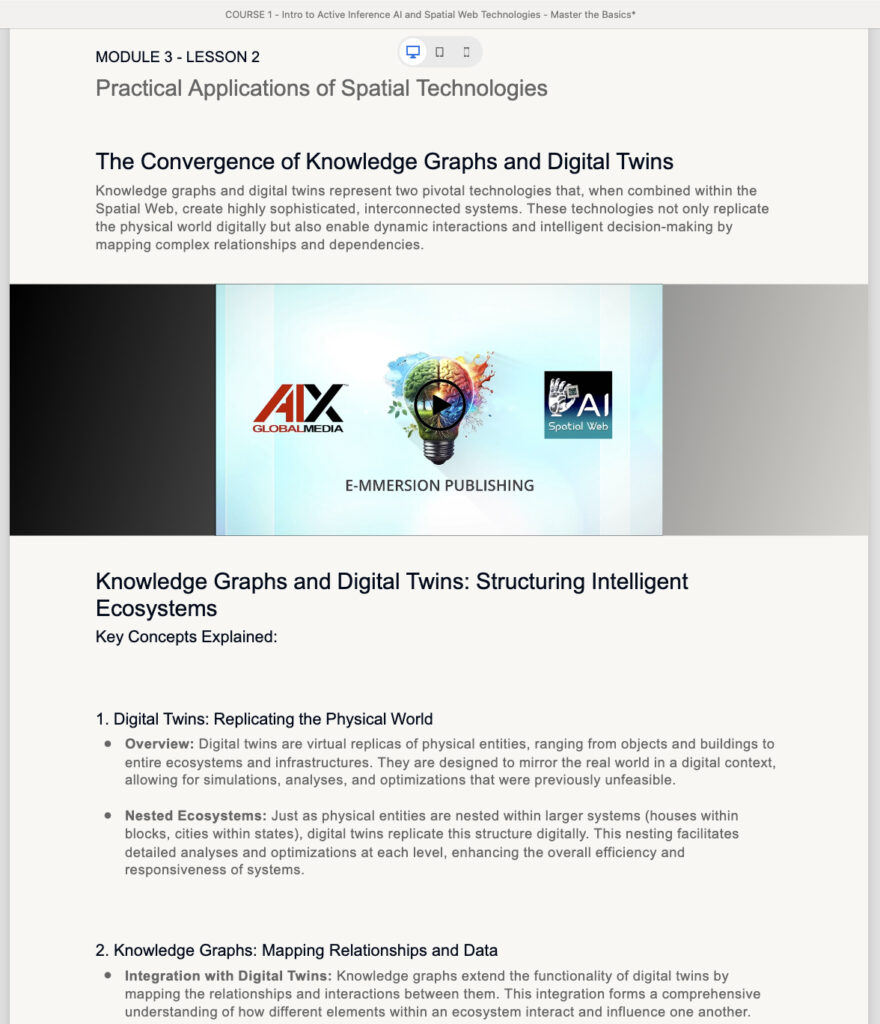
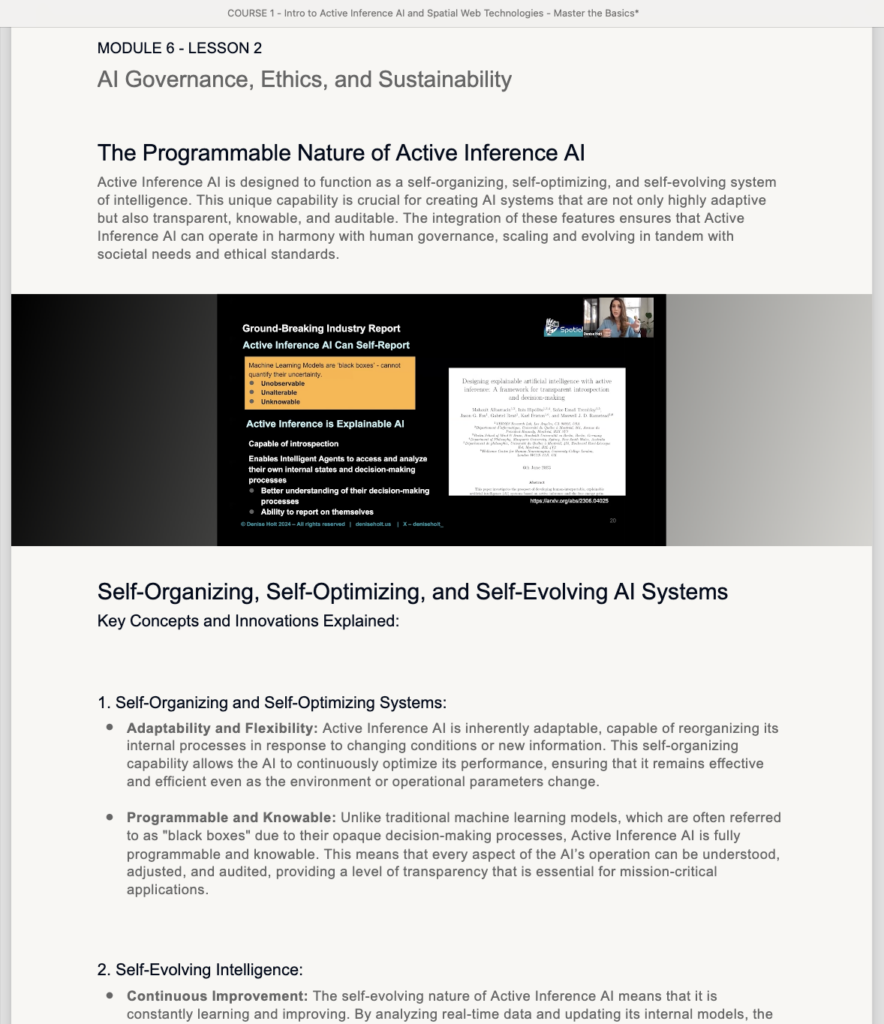
Empower Your Future with Exclusive Certification

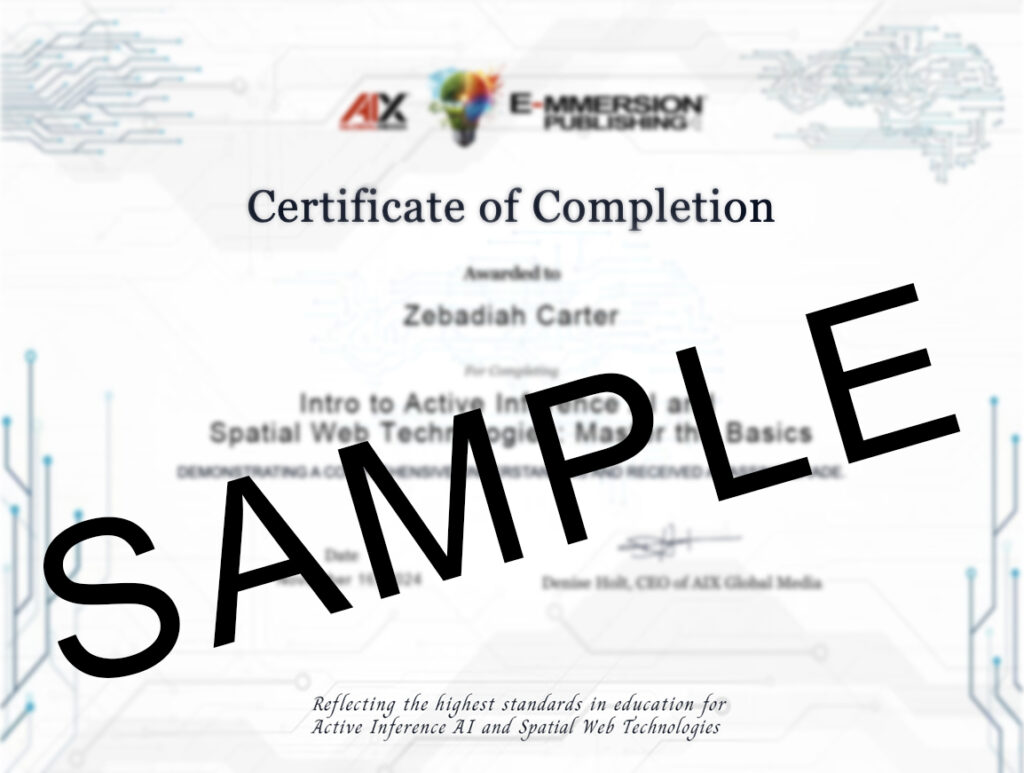
Lead the Next Era of Technology with Expertise in Active Inference AI and Spatial Computing
Earning certification through our courses on Active Inference AI and Spatial Web Technologies places you at the forefront of technological innovation. As the only educator and recognized authority in this groundbreaking field, I’ve designed these courses to provide unparalleled expertise and practical insights. Executive leaders who achieve certification gain a distinct advantage, positioning themselves as trailblazers in shaping the next evolution of intelligent, decentralized systems. In a rapidly changing technological landscape, this certification signifies your mastery and readiness to lead in the era of transformative AI and spatial technologies.
Successfully passing this course with a score of 80% or greater, earns you a Certificate of Completion for the course.
This Course is part of a 7 course Executive Certification Program to become a Certified Specialist in Active Inference AI and Spatial Web Technologies.

Explore the Courses:
Click on any course for an in-depth look…
© 2025 AIX Global Media All Rights Reserved.




